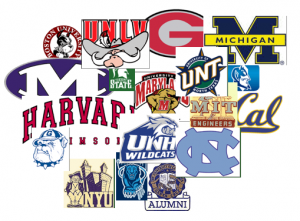 College prep doesn’t start junior or senior year when your student starts preparing for the college application process. It ideally starts in middle school when parents and students begin to think about the future and ask questions about the student’s readiness for college. It’s not surprising either that students tend to steer away from the difficult majors, especially those requiring math.
College prep doesn’t start junior or senior year when your student starts preparing for the college application process. It ideally starts in middle school when parents and students begin to think about the future and ask questions about the student’s readiness for college. It’s not surprising either that students tend to steer away from the difficult majors, especially those requiring math.
According to survey results released recently by the Lemelson-MIT Invention Index, students see barriers to pursuing STEM (science, technology, engineering and math) degrees. This is indeed cause for concern since America is behind other countries in the number of students studying and entering these professions. According to an article in the Huffington post:
Sixty percent of respondents ages 16 to 25 to the Lemelson-MIT Invention Index, which seeks to gauge innovation aptitude among young adults, named at least one factor that prevented them from pursuing further education or work in science, technology, engineering and math fields (known as STEM). Thirty-four percent said they “don’t know much about these fields,” while a third said “these fields are too challenging.” Twenty-eight percent said they weren’t “well-prepared in school to seek out a career or further … [their] education in these fields.”
Alleyoop
Alleyoop, a college readiness network for students and their families, is addressing this issue by providing help in these specific areas:
What is College Readiness?
What does college readiness mean to us? It is so much more than getting accepted. An astonishing five out of six middle and high school students will not succeed in college. The cost in terms of lost potential (and tuition) is huge. College readiness is our mission, and it is our belief that it starts with mastering math.
Why Math?
Teens who master math are more likely to be successful in high school (and success in high school leads to success in college). We conducted dozens of parent and teen interviews and one theme was persistent – teens need help with math. Alleyoop offers teens the ability to practice their subject of choice at their own pace, whether they are struggling or just want to get ahead. Soon we’ll be adding virtual college guidance, English curriculum and career exploration!
How Do We Prepare Teens for College?
We are here to help teens succeed in school now and college later with our personalized learning plans, step-by-step math videos and one-on-one tutoring. We recommend just the help teens need, exactly when they need it. Alleyoop is structured as a game, with missions (a learning plan) built around achievements and Yoop rewards. We are teen tested, partnering with teens to build an environment that reflects how they like to learn. It’s empowering, it’s relevant and it’s a game.
Math Doesn’t Suck
Danica McKellar is a New York Times bestselling author, internationally-recognized mathematician and advocate for math education. A summa cum laude graduate of UCLA with a degree in Mathematics, Danica has been honored in Britain’s esteemed Journal of Physics and the New York Timesfor her work in mathematics, most notably for her role as co-author of a ground-breaking mathematical physics theorem which bears her name (The Chayes-McKellar-Winn Theorem).
Danica has written a book, Math Doesn’t Suck, to help middle school students (especially girls) realize their math potential, even when they think it might be difficult. An excerpt from her book explains her motivation:
I was terrified of math.
I remember sitting in my seventh grade math class, staring at a quiz as if it were written in Chinese—it might as well have been a blank sheet of paper. Total brain freeze.
Nothing made sense, I felt sick to my stomach, and I could feel the blood draining from my face. I had studied so hard, but it didn’t seem to make any difference—I barely even recognized the math problems on the page.
When the bell rang and my quiz was still blank, I wanted to disappear into my chair. I just didn’t want to exist.
If you had told me that ten years later I would be graduating from college with a degree in mathematics, I would probably have told you to get your head examined.
As it turns out, though, no head examination necessary! I did in fact develop a love of math through the eighth grade and into high school, and made up tons of cool tricks and ways of remembering things along the way—tricks that I’m now going to share with you in this book!
Does your student hate math?
If you have a student that hates math or says they don’t understand it, perhaps it’s just because they haven’t been educated properly or found the right tools and explanations to help them succeed. Alleyoop and Danica McKellar’s book might open the door and lead them to pursue a STEM degree in college. At the very least, these tools will help prepare them for college by improving their math skills.








